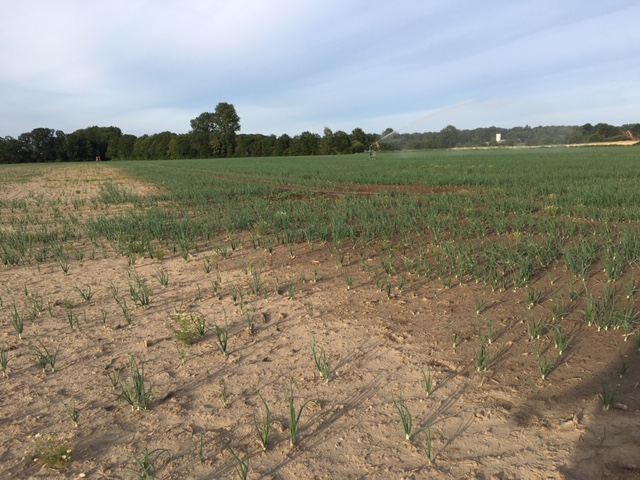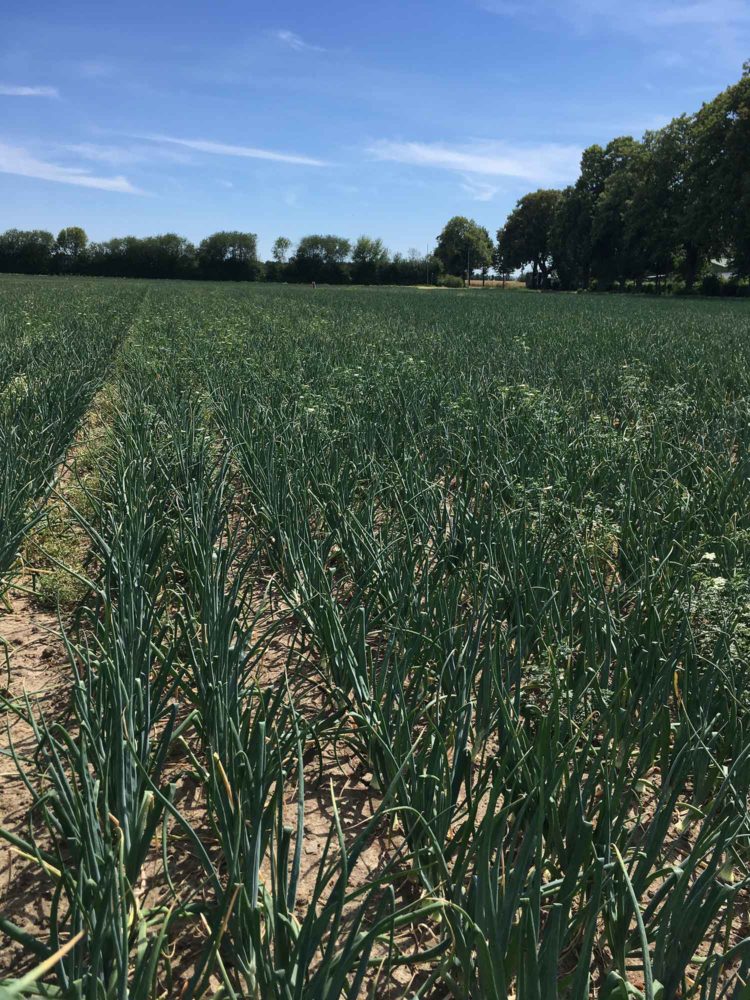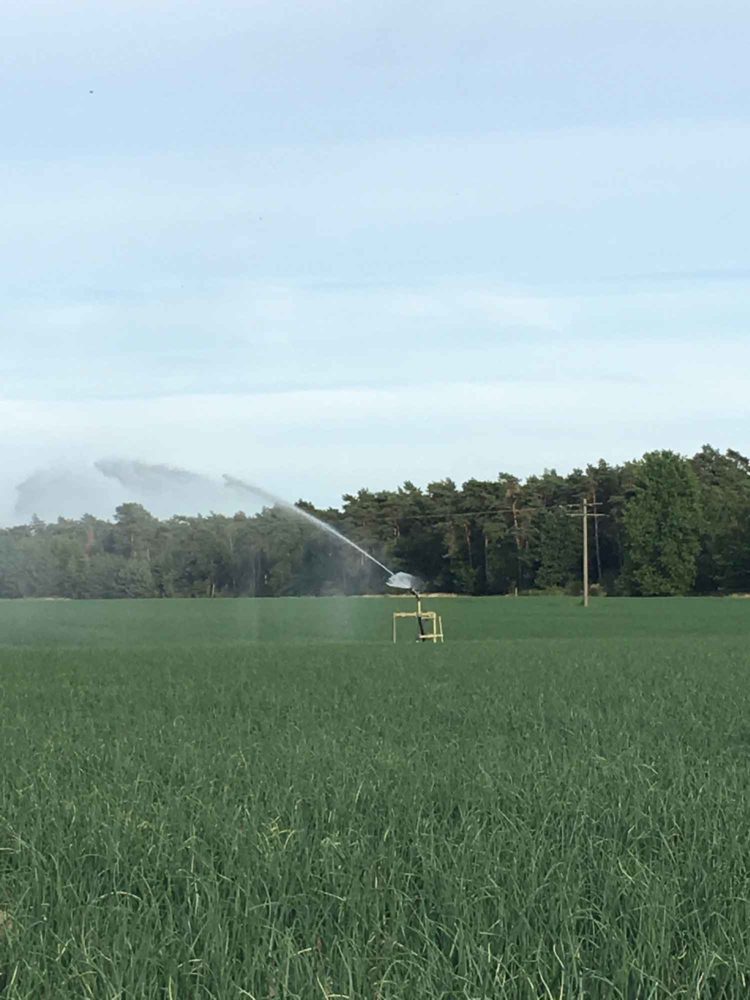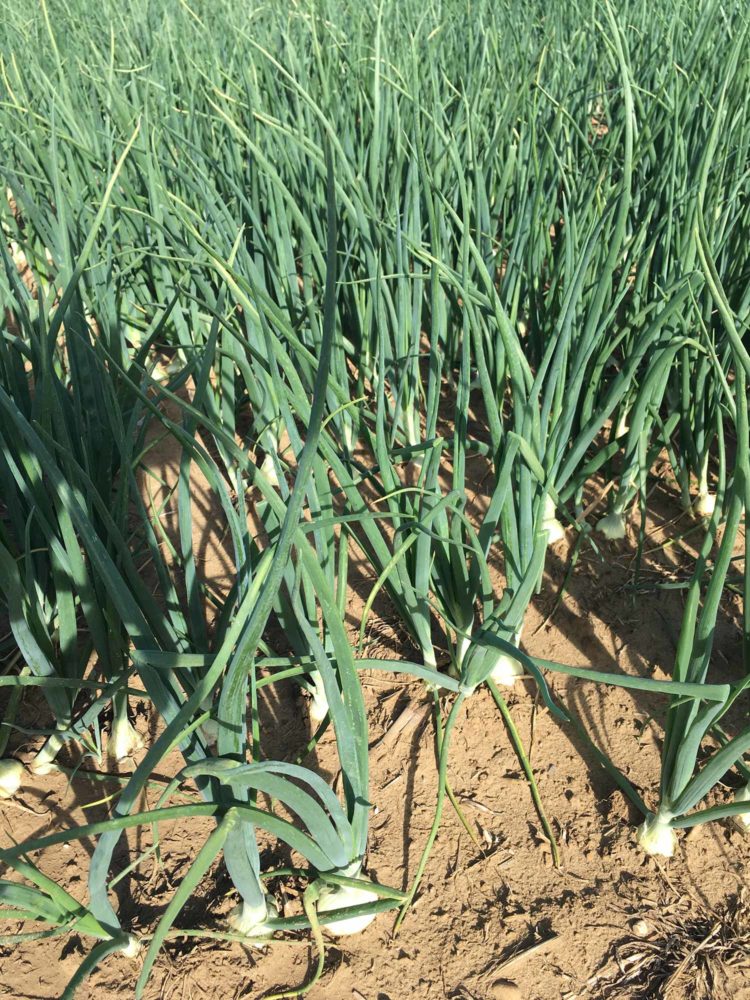An onion with lots of DRUMHERUM
Yesterday we visited the farmers who grow onions for us. How much work is behind the onions. What a few years ago was done by the rain, the irrigation, is now a lot of work, sometimes from 4.00 in the morning until late in the evening. Driving the sprinklers to their destination, setting them up, starting them, moving them, and so on. And it's not just a small reel with a hose, it's real work.
But also all the thoughts "around it": What can be done to prevent the seeds from flying away in the wind or "floating" away in the rain? When can it be sprayed - for one spray it has to be dry, for the next it needs water. And then spraying is carried out in such a way that for the most part there are no residues at all in the onion and if there are any, they are far below the approval limit. The heat and drought also bring back pests that could destroy the crop. And then everything is done and it still doesn't work. And it's not just onions that are so heavily used, but a whole host of fruit and vegetable products, cereals, maize, herbs, etc. We should all bear this in mind when buying and handling food!
Many thanks to our farmers!

Unfortunately not a rare sight: Barren onion fields due to the long drought.
 |
 |
 |
